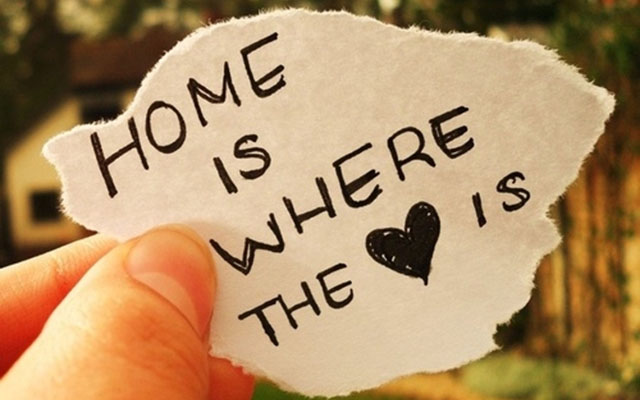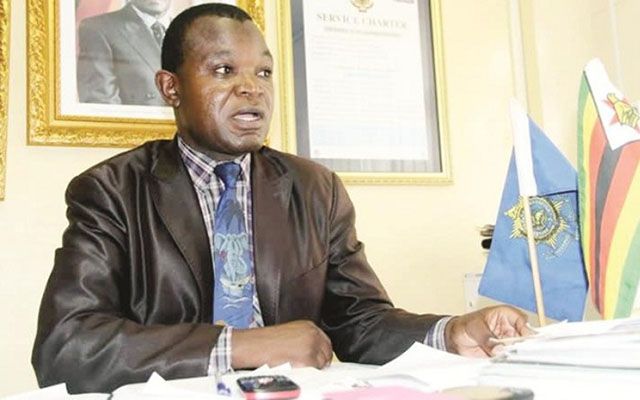Locals in Diaspora, the meaning of home


Most Zimbabweans in the Diaspora have a home where they belong to back here in the country, where they originated from
Dr Sekai Nzenza on Wednesday
Greetings from Perth, Western Australia. I have made a stop-over here to see my niece Varaidzo, and then I will proceed to Melbourne where many of my close family members live.Some of them live in Sydney, Darwin, and Alice Springs and even in a remote mining town called Mt Isa. My relatives, like many Zimbabweans in the Diaspora, are scattered everywhere.
Here in Perth, I am staying with Varaidzo, my brother’s daughter. She met a very nice guy from Zvimba, of the Gushungo totem. He sent his people to pay lobola in our village at the end of last year. At Christmas time, our son-in-law, Gushungo, came over to the village along with his mother and other relatives. It was a joyous occasion when our two families met, even though Varaidzo was here in Perth and has not yet visited her husband’s village. But that has not stopped us from celebrating the union between our two families. We are Shona and our ancestors have followed this custom of creating relationship through lobola since time immemorial.
Varaidzo and Gushungo invited several of their Zimbabwean friends for a bar-b-que. There must have been more than 30 people, mostly couples and their children. One lady called Maggie also brought along her mother who was visiting from Zimbabwe.
Maggie is a nurse who came to Australia via the United Kingdom. She trained in Zimbabwe and was hired by a British recruitment company around 2003.
In 2007, she migrated to Australia because her husband, an electrician, who was unemployed in the UK, said they could have a better life in Australia. Since then, Maggie and her husband have facilitated the migration of many of their siblings and other relatives.
There were a few single people at the braai. One guy called Musafare said he enjoyed reading the articles I write in this column weekly. He reads them online and they help him to stay connected with home. We immediately started talking about the number of years he has lived here in Australia and if he wished to return to Zimbabwe at some stage.
“I live here in Perth, Western Australia. I shall die and be buried here. This is my home,” declared Musafare. “Kumusha ndekupi?” I asked, rather naively, meaning, where exactly is your home. But he has just told you, Tete,” said Varaidzo as she moved around passing sausages in a tray. “He said Australia in his home.” Then Gushungo said I should not take what Musafare says so seriously.
He then jokingly warned Musafare not to say too much, in case I write about him in this weekly column. Musafare said he did not mind if I wrote about him. He was proud to call himself a Zimbabwean now living forever in Australia.
Musafare or Musa in short, came to Australia during the liberation war when he was running away from the Rhodesian colonial system. He was in his early 20’s and had been to many African countries before he found refugee status in Australia. At independence, he came home and got married. He taught mathematics for several years. When the economy changed, Musafare came here with his wife and three children in 2003.
The plan was to work in Perth for a few years then return home to Zimbabwe. He never did. He got divorced from his wife. She married someone else and Musa met a lady from the Pacific Island of Fiji and they live together.
There was an argument over the places we call home. Musa said he had given Zimbabwe a goodbye because the world is a global place. God created this world to be shared.
He said the British colonised many territories and up to this day, you find an Englishman saying he is fifth generation Zimbabwean. If he can call Zimbabwe his home, why can’t a black man call England home? If the Australians can massacre almost all the Aboriginal people of Australia and declare Australia home, an African born in Zimbabwe can also call Australia home. If America can massacre many indigenous Americans or the so-called Red Indians, then exploit Africans as slaves and still enjoy the freedom of being American, why can we also not enjoy that freedom?
Every African should have the right to claim any country that gives us this freedom even if it is built on the history of torture, murder and the exploitation of others. Today, America is home to so many migrants who call that big country home. Those migrants forget that America was built on the sweat of the black man.
We can also choose former colonised countries and call them home the same way the British, Spanish, Portuguese, French, German and many Europeans do elsewhere. At one stage, I shared some of Musafare radical views. That was the time when I lived here in Australia as a student and as a professional. This is the country where I received most of my education.
Whenever the plane touches down and I arrive here, I have this strange feeling of coming home. And yet, when I arrived at the airport in Perth a couple of days before, the customs officer patronisingly said, “Have you got anything to declare Miss Zimbabwe?”
I wanted to say, actually, I am not Miss Zimbabwe. I am just as Australian as you are because this is Aboriginal country. We are both colonialists. But I did not say that. Instead, I walked away, feeling that as long as you are black and you look African, people will always identify you as an African.
Then I suddenly felt a sense of pride. The ambivalence of being a foreigner left me. I was Zimbabwean with a home where I belong. That home is somewhere along the Save River, kumusha kwangu kwandakabva. One day I shall be buried there, among my people. I looked around the people standing around the bar-b-que talking mostly about Zimbabwe and how hard it is to get cash these days.
I wondered if these Zimbabweans will ever come back home, or will they call Australia home forever? “But what is the reason of not wanting to go home?” I asked Musafare.
Musafare said he had bad memories about how he lost his job when America and Britain imposed sanctions on Zimbabwe. Someone among the guys said Musafare should not blame the sanctions.
He lost his job because he was drinking too much kachasu and smoking marijuana. Others joined in the laughter. Musafare ignored them. He said after his mother died, he felt no reason to return home. His father had died when he was young. He had one sister in America and there was hardly anyone back home that he would return to see.
Besides, some of his relatives were either struggling to survive and would welcome him back because they expect money or some benefits. He was not in a position to support anyone apart from paying child support for two of his children.
“Migration to new places has always been part of us,” said Mai Maggie. She said she came from Masvingo and this was her fourth visit to Australia. “I have my village, my fields, my church, relatives and friends to return home to. Why would I forget my home and choose to live in this foreign place?” “There are many reasons why I do not want to go home,” said Musafare, lighting his cigarette. “Politics?” asked Mai Maggie.
“No. I do not care about politics much. I cannot change how a country is run. My problem is simple: I have lived in Australia most of my life. This is home, as I said before. So I shall die here,” said Musafare.
“Iii, this is new to me. I have never heard of a child born by Zimbabwean parents who can openly reject his own country like this,” said Mai Maggie. Musafare then argued that Zimbabweans over the years migrated and many never returned home. “Sure, migration is not new in our history. But, in the past, our people have returned home,” I said.
In my own family, we had Babamukuru Mujubheki who disappeared in South Africa for more than 20 years, only to return one day with three Zulu speaking children and no wife. Then there was Babamumini Nyika, who migrated to Malawi for more than 30 years. He was deported one day by President Kamuzu Banda and up to this day, we do not know why he was given a one way ticket home.
But that was long before independence. The world continues to change. Our cousin, Wanda went to America where he has since joined a religious sect. We have no idea where he is. Wanda is just another Zimbabwean lost in the Diaspora.
Perhaps it is time we accept that some of our relatives will find places they call home elsewhere. They shall forever live and be buried in the Diaspora.
The countries we migrate to and seek our fortunes in may indeed become home. But in the end, Zimbabwe will always remain the place where our origins, our history and our heritage live. This is where the umbilical cord is buried. Pane rukuvhute.
Dr Sekai Nzenza is a writer and cultural critic.








Comments